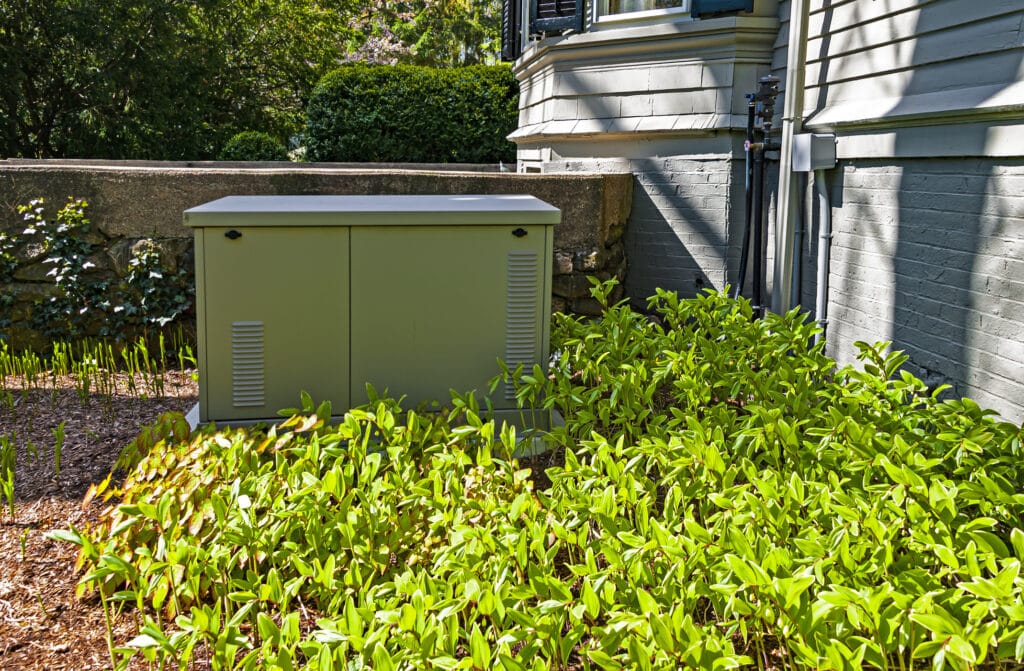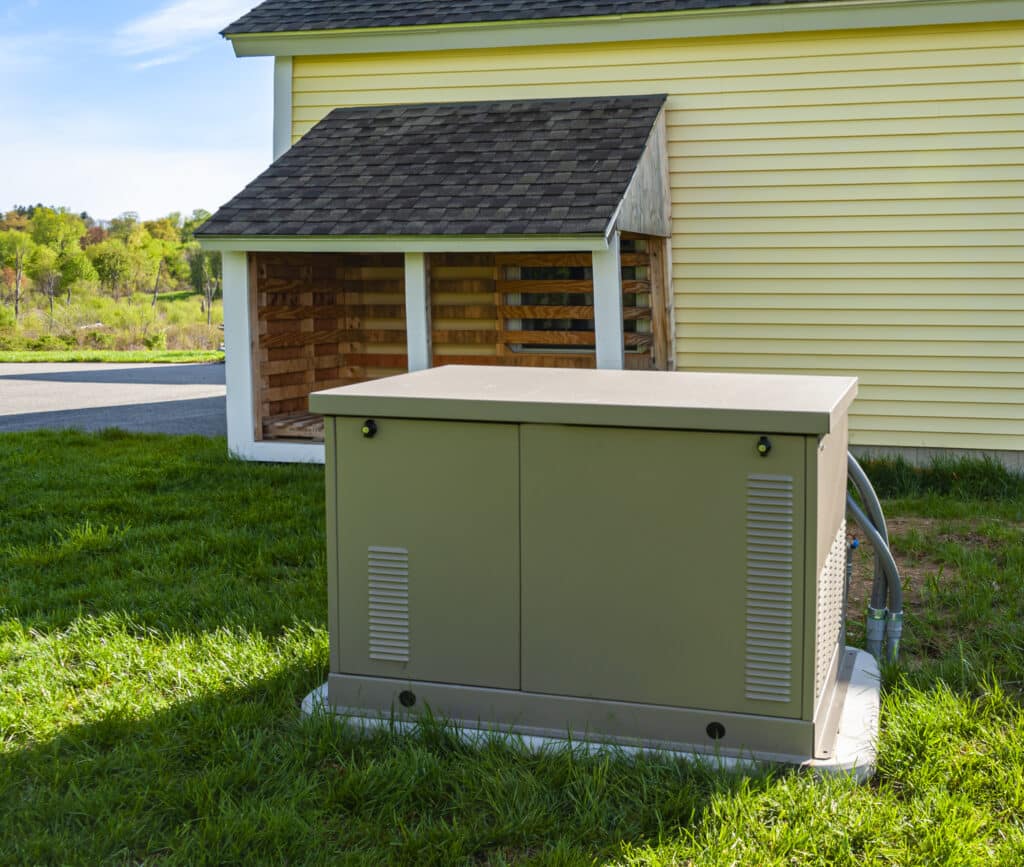
What Causes Overheating in Standby Generators
In Myrtle Beach, SC, where the weather can be unpredictable, standby generators are a household’s safeguard against power outages. These essential devices ensure that homes remain comfortable and functional, even during severe storms. However, like any piece of machinery, standby generators can face challenges, with overheating being a common issue. Understanding the causes of this problem is the first step toward prevention and ensuring your generator remains reliable.
Coolant leaks are a primary culprit behind the overheating of standby generators. When the cooling system is compromised, it can’t effectively regulate the engine’s temperature. This scenario forces the generator to work harder, increasing the risk of overheating and potentially causing significant damage. Regular checks for leaks can help avoid such situations, keeping your generator in optimal condition.
Another factor contributing to overheating is clogged air filters, especially in areas like Conway, SC, where the air might carry more particulates. These filters are crucial for maintaining clean airflow to the engine. When they become blocked, it restricts the flow, causing the engine to overheat. Simple maintenance routines, including air filter replacement, can significantly mitigate this risk.
Lastly, blocked ventilation can also lead to overheating in standby generators. Proper ventilation is essential for dispersing heat away from the engine. Any obstruction can trap heat, elevating the generator’s temperature to dangerous levels. Ensuring clear ventilation paths can greatly enhance the efficiency and longevity of your standby generator, keeping it ready for any emergency.
Understanding Standby Generators and Their Cooling Needs
Recognizing the signs of overheating in standby generators is crucial for homeowners in Myrtle Beach, SC, to prevent long-term damage. Warning indicators such as unexpected shutdowns, excessive noise, or warning lights on the control panel should not be ignored. These signs suggest that the generator is working harder than it should, possibly due to issues like coolant leaks or clogged filters. Addressing these early warnings can save you from costly repairs and ensure your generator is ready when you need it most.
Regular maintenance is key to preventing overheating and ensuring the longevity of standby generators. This includes scheduled inspections to check for coolant leaks, cleaning or replacing air filters, and ensuring ventilation paths are clear. Such preventive measures are especially important in areas like Conway, SC, where environmental conditions can contribute to the wear and tear of the generator. By keeping up with maintenance, homeowners can avoid the common pitfalls that lead to overheating.
In addition to routine checks, understanding your generator’s cooling needs plays a significant role in preventing overheating. Standby generators require a balance of clean airflow and proper coolant levels to operate efficiently. When either of these is compromised, the risk of overheating increases. Homeowners should familiarize themselves with their generator’s specific requirements and adhere to the manufacturer’s guidelines for cooling.
Lastly, professional servicing is an invaluable part of maintaining the health of standby generators. Experts can identify and address issues that may not be obvious to the average homeowner. They can perform comprehensive checks, including testing the coolant system, inspecting the air filters for blockages, and ensuring the ventilation is not obstructed. Enlisting the help of professionals ensures your standby generator remains in peak condition, ready to provide reliable power during emergencies.

The Role of Coolant in Preventing Generator Overheating
Coolant plays a crucial role in maintaining the optimal performance of standby generators, especially in hot climates like Myrtle Beach, SC. It works by absorbing excess heat from the engine, preventing it from overheating. Without adequate coolant, the engine’s temperature can rise quickly, leading to potential damage or failure. Homeowners should check coolant levels regularly to ensure their generator remains in good working condition.
In addition to maintaining proper coolant levels, the quality of the coolant itself is important. Over time, coolant can degrade, losing its ability to effectively absorb and dissipate heat. This degradation can be accelerated by environmental factors, such as the salty air in coastal areas like Conway, SC. Replacing old coolant with fresh fluid can significantly enhance the cooling efficiency of standby generators.
Another aspect to consider is the cooling system’s overall integrity. Leaks in the system can lead to a loss of coolant, compromising the generator’s ability to manage heat. Regular inspections can identify any signs of wear or damage early, allowing for timely repairs. This proactive approach helps prevent overheating and extends the lifespan of standby generators.
Finally, understanding the specific cooling requirements of your standby generator is essential. Each model may have different needs in terms of coolant type and volume. Following the manufacturer’s guidelines ensures that the cooling system operates effectively, keeping the generator cool even during high-demand periods. By prioritizing coolant maintenance, homeowners can enjoy the peace of mind that comes with a reliable standby generator.
How Clogged Air Filters Affect Standby Generators
Clogged air filters significantly impact the performance of standby generators, especially in environments like Myrtle Beach, SC, where air quality can vary. These filters are essential for capturing debris and preventing it from entering the engine. When they become blocked, it restricts airflow, making it difficult for the generator to maintain optimal operating temperatures. Regularly replacing or cleaning air filters can prevent this issue and ensure efficient generator operation.
In areas such as Conway, SC, the air often carries more particulates due to both natural and human-made factors. This situation can lead to air filters becoming clogged more quickly than in cleaner environments. Homeowners should monitor their standby generators more closely and consider more frequent maintenance checks. Doing so helps maintain the necessary airflow to the engine, preventing overheating and potential damage.
The consequences of ignoring clogged air filters in standby generators can be severe. Restricted airflow forces the engine to work harder than necessary, which can lead to overheating. Over time, this strain not only reduces the efficiency of the generator but can also cause significant internal damage. Proactive maintenance is key to avoiding these costly issues and ensuring the longevity of your standby generator.
Ultimately, the health of standby generators relies on clean and unobstructed air filters. Homeowners should familiarize themselves with their generator’s specific air filter needs and adhere to a regular maintenance schedule. By doing so, they can keep their standby generators running smoothly, ready to provide reliable power during emergencies. This simple step is crucial in maintaining the effectiveness and reliability of your standby generator.
The Impact of Blocked Ventilation on Generator Performance
Blocked ventilation is another critical factor that affects the performance of standby generators, particularly in places like Myrtle Beach, SC. When the generator’s ventilation system is obstructed, it hinders the machine’s ability to expel heat. This buildup of heat forces the generator to operate under stressful conditions, risking overheating. Homeowners should ensure that the area around their standby generators is clear of debris and obstructions to maintain proper airflow.
In environments such as Conway, SC, where foliage and natural debris can accumulate quickly, the risk of blocked ventilation increases. Leaves, twigs, and other materials can easily block air inlets and outlets, restricting the generator’s cooling process. Regularly inspecting and clearing the generator’s surroundings can prevent such issues. This simple maintenance task is essential for the efficient operation of standby generators.
The consequences of ignoring blocked ventilation can be severe, leading to decreased efficiency and potential damage to the generator. Without adequate ventilation, the generator’s engine may overheat, causing it to shut down unexpectedly or, worse, suffer long-term damage. Homeowners should prioritize keeping the ventilation paths clear as part of their routine generator maintenance. This practice not only extends the life of the generator but also ensures it remains reliable during power outages.
Ultimately, the performance and longevity of standby generators heavily depend on proper ventilation. By understanding the importance of this aspect, homeowners can take proactive steps to avoid overheating issues. Regular checks and maintenance of the generator’s ventilation system are crucial in safeguarding against performance issues. Ensuring your standby generator has unobstructed ventilation helps keep it running smoothly, ready to provide power whenever it’s needed.
Recognizing the Early Signs of Overheating in Standby Generators
Recognizing the early signs of overheating in standby generators is crucial for homeowners in Myrtle Beach, SC. One common indicator is an unexpected increase in the unit’s surface temperature. If the generator feels hotter than usual to the touch, it’s a sign that it might be working too hard. This could be due to any of the previously mentioned issues like coolant leaks or blocked airflow.
Another telltale sign is the appearance of warning lights or error messages on the generator’s control panel. These alerts are designed to catch your attention before a minor issue becomes a major problem. Homeowners should take these warnings seriously and investigate the cause immediately. Ignoring them could lead to a complete shutdown or significant damage to the generator.
In Conway, SC, residents might also notice a decrease in generator efficiency as a symptom of overheating. If the generator struggles to maintain power or shuts off unexpectedly, it’s likely overheating. This is often the generator’s way of protecting itself from internal damage. It’s essential to address these performance issues quickly to prevent long-term consequences.
Lastly, unusual noises coming from the generator can indicate overheating. Sounds like knocking, rattling, or excessive humming suggest that the internal components are under stress. These noises should not be ignored, as they can lead to more serious damage if left unchecked. Regular maintenance and prompt attention to these early warning signs can help keep standby generators running smoothly.
The Consequences of Ignoring Overheating in Standby Generators
Ignoring the signs of overheating in standby generators can lead to severe consequences for homeowners in Myrtle Beach, SC. If left unchecked, the excessive heat can cause internal components to fail, leading to costly repairs or the need for a complete replacement. This not only places a financial burden on the homeowner but also leaves them without a reliable power source during emergencies. Regular attention to maintenance needs prevents these issues, ensuring the generator operates efficiently when needed most.
In Conway, SC, the impact of overheating on standby generators extends beyond immediate damage. Over time, persistent overheating can shorten the lifespan of the generator, diminishing its value and effectiveness. This degradation forces homeowners to face premature investment in a new unit, disrupting their peace of mind and emergency preparedness. Staying vigilant about cooling system health is key to maximizing the longevity of these essential machines.
Moreover, the safety risks associated with overheating standby generators cannot be overstated. High temperatures can lead to fires or other hazardous conditions, endangering the home and its occupants. Ensuring that the generator is functioning within safe temperature ranges protects everyone involved. It’s a critical aspect of responsible generator ownership, highlighting the importance of addressing overheating signs promptly.
Finally, the efficiency of standby generators is significantly compromised by overheating. When a generator operates at higher than intended temperatures, its ability to produce power efficiently decreases. This inefficiency can result in inadequate power supply during outages, defeating the purpose of having a standby generator. Homeowners can avoid this pitfall through regular maintenance, keeping their standby generators ready to perform when the need arises.
Regular Maintenance Tips for Standby Generators
To keep standby generators in Myrtle Beach, SC, running efficiently, setting a regular maintenance schedule is crucial. This ensures that all parts are functioning correctly and any potential issues are caught early. Simple tasks like checking oil levels, inspecting battery terminals for corrosion, and verifying the operation of the control panel can make a significant difference. These steps help prevent the common causes of overheating and ensure the generator is ready for emergencies.
In Conway, SC, environmental factors such as humidity and salt air can accelerate wear on standby generators. Homeowners should clean the exterior of their generator regularly to remove any debris or buildup that could affect its performance. Applying protective coatings can also help guard against corrosion, extending the lifespan of the generator. Keeping the generator clean not only maintains its efficiency but also its reliability during power outages.
Another important aspect of maintenance is testing the generator under load conditions. This means running the generator at its full capacity for a short period to ensure it can handle the demand during an actual power outage. Such tests can reveal if there are any performance issues that need addressing. They also help homeowners feel confident that their standby generators will perform when needed most.
Lastly, consulting with a professional service provider annually can complement a homeowner’s maintenance efforts. These experts can perform more in-depth inspections, identify issues not easily spotted, and recommend any necessary repairs. Their expertise ensures that standby generators in both Myrtle Beach, SC, and Conway, SC, remain in top condition, providing peace of mind to homeowners relying on these critical emergency power sources.
Professional Inspection and Maintenance for Standby Generators
Professional inspection and maintenance play a pivotal role in ensuring the longevity and reliability of standby generators, particularly in areas like Myrtle Beach, SC. By enlisting the expertise of professionals, homeowners can benefit from thorough assessments that go beyond surface-level checks. These specialists bring a depth of knowledge, allowing them to diagnose and rectify complex issues that might escape the untrained eye. Regular professional servicing ensures that standby generators function efficiently, providing a reliable source of power during emergencies.
In Conway, SC, the environmental conditions can be harsh on standby generators, making professional maintenance even more crucial. Experts can apply their understanding of local climate challenges to offer tailored advice and solutions. They can identify potential problems before they escalate, such as parts affected by humidity or salt air, and implement preventive measures. This proactive approach helps in avoiding unexpected breakdowns, ensuring that standby generators are always ready to serve their purpose.
Moreover, professional maintenance services often include a comprehensive inspection of all generator components. This includes checking the cooling system, ensuring the air filters are clean and unobstructed, and verifying that the ventilation is adequate. Such detailed inspections can uncover issues that might not be immediately apparent, preventing overheating and other common problems that could lead to costly repairs or replacements down the line.
Lastly, the peace of mind that comes with professional servicing of standby generators cannot be overstated. Homeowners in Myrtle Beach, SC, and Conway, SC, can rest assured knowing their generators are in optimal condition, capable of providing uninterrupted power during outages. This confidence is invaluable, especially during the hurricane season or unexpected power failures, making professional maintenance an essential aspect of standby generator ownership.

Frequently Asked Questions
What are common signs of generator overheating?
Common signs of generator overheating include unexpected shutdowns and warning lights on the control panel. You might also notice the engine making unusual noises or emitting smoke. These symptoms suggest the standby generator is working too hard and could be at risk of damage. Regular checks can prevent these issues, ensuring your generator remains reliable.
How can overheating affect standby generators?
Overheating in standby generators can lead to serious problems. It often causes internal components to wear out faster, reducing the generator’s lifespan. This can also trigger emergency shutdowns, leaving your home without power when you need it most. To avoid these issues, regular maintenance and timely repairs are crucial for keeping your generator running smoothly.
What maintenance can prevent overheating?
To prevent overheating in standby generators, regular inspections are key. Checking for coolant leaks, cleaning clogged air filters, and ensuring ventilation isn’t blocked can make a big difference. Addressing these issues early helps the generator run smoothly. Thus, scheduling routine maintenance is essential for keeping your generator cool and reliable.
How do standby generators cool down?
Standby generators use a cooling system to manage their temperature. This system typically involves a fan and coolant to dissipate heat. Air flows over the engine, carrying away excess warmth. Regular maintenance ensures this process runs efficiently, keeping the generator cool.
Can weather impact standby generators’ temperature?
Yes, weather conditions can greatly affect the temperature of standby generators. Extreme heat can cause them to overheat more quickly, while cold weather may make it harder for them to start and run efficiently. Proper insulation and ventilation are crucial to mitigate these effects. Regular maintenance checks are essential to ensure they operate smoothly, regardless of the weather.

